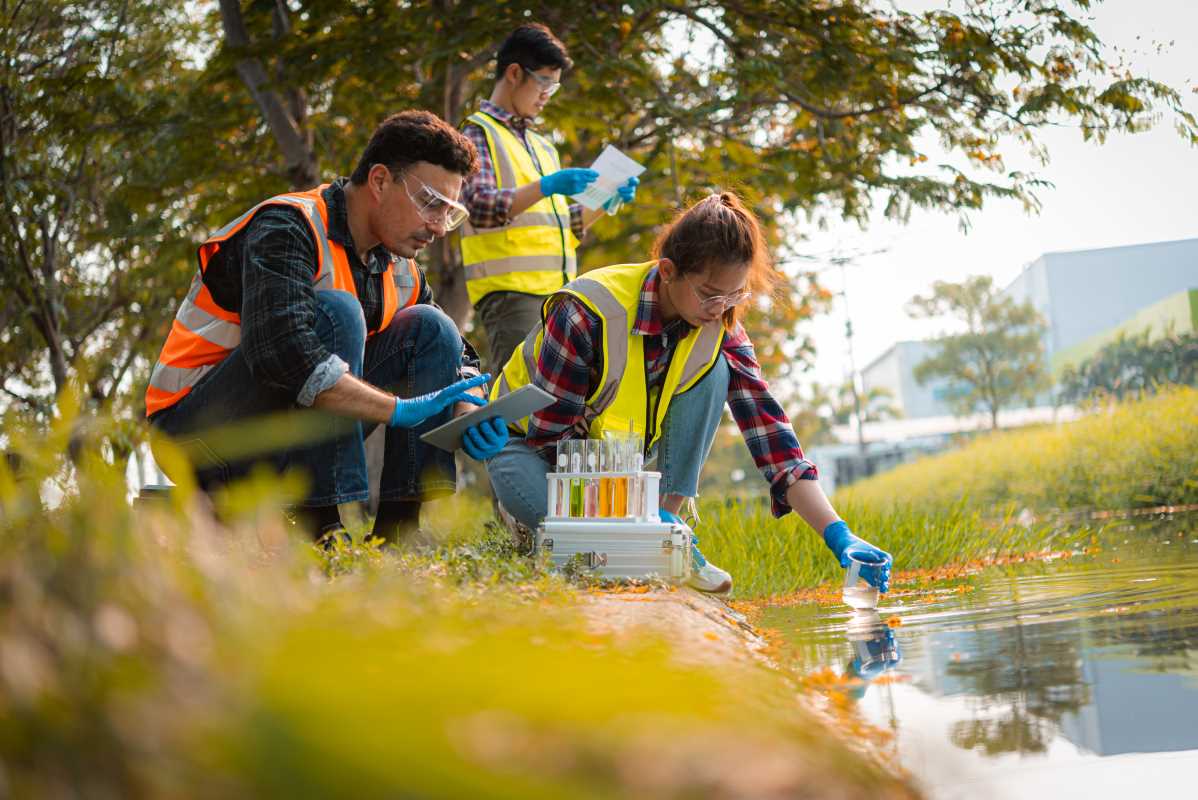The world is racing to find sustainable solutions to our biggest environmental challenges, and the green technology sector is exploding with innovation. This industry is all about creating products and services that reduce our environmental impact, from renewable energy sources to sustainable agriculture. You might think this field is only for engineers and tech gurus, but that’s not the whole story. A Master’s in Environmental Science provides the perfect foundation for a leadership role in green tech. This advanced degree gives you a deep understanding of complex ecosystems and environmental policy. It uniquely positions you to guide companies in developing technologies that are not merely profitable but genuinely good for the planet.
What is Green Tech, Really?
Green technology, or "greentech," is a broad term for any technology that helps solve an environmental problem. Its main goal is to reduce negative human impacts on the planet, conserve natural resources, and repair past damage. This isn't simply about solar panels and wind turbines anymore. Green tech is a diverse and rapidly growing field that touches almost every part of our economy.
Think of it as innovation with a conscience. It includes diverse projects with the sole purpose of improving the Earth and having a sustainable future.
- Developing biodegradable plastics and building energy-efficient homes
- Creating software that helps companies track their carbon footprint
- Advanced water purification systems and electric vehicles that reduce air pollution.
- Vertical farming that uses less land and water
A Master's in Environmental Science gives you the scientific literacy to understand these challenges on a fundamental level.
Your Master's Degree as a Leadership Launchpad
An advanced degree in environmental science does more than teach you about the natural world. It trains you to be a critical thinker and a problem-solver. You learn how to analyze complex data, understand the connections between different environmental systems, and evaluate the long-term impacts of human activities. These are the exact skills that green tech companies need in their leaders.
Engineers and software developers are brilliant at building things, but they often need someone who can provide the "why" behind the "what." You become that person. You can guide product development by guaranteeing a new technology actually delivers on its environmental promises. You can assess whether a proposed solution for reducing waste might have unintended consequences elsewhere in the ecosystem.
Key Skills You Bring to the Table:
- Scientific Expertise: You have a deep understanding of ecology, climate science, and resource management. You can provide the scientific backing for a company's sustainability claims, adding credibility and direction.
- Policy and Regulation Knowledge: Your master's program will likely cover environmental law and policy. This allows you to help companies navigate complex regulations and stay ahead of future legal changes.
- Data Analysis and Modeling: You are trained to interpret complex environmental data and use it to predict trends. This skill is vital for everything from assessing project risk to measuring a product's life-cycle impact.
- Systems Thinking: You know that environmental issues are interconnected. This holistic perspective helps you lead teams in creating solutions that don't solve one problem while creating another.
Bridging the Gap Between Science and Business
One of the most valuable roles for someone with a Master's in Environmental Science is that of a translator. You can speak the language of science and the language of business, bridging a common gap within green tech companies. You can explain complex scientific concepts to executives and investors, making a clear case for why a particular sustainable strategy is a smart business decision. A comprehensive approach, known as a Life Cycle Assessment (LCA), is crucial for combining business and science into one. You can create a product that is truly "green" and is a skill directly honed in an environmental science master's program.
Potential Leadership Roles for You:
- Sustainability Manager/Director: You would lead a company's entire environmental strategy, setting goals for reducing waste, energy use, and emissions.
- Green Product Manager: You would oversee the development of new sustainable products, making sure they meet both market needs and environmental standards.
- Environmental, Social, and Governance (ESG) Analyst: You would advise companies or investors on the environmental risks and opportunities associated with certain business practices.
- Cleantech Consultant: You could work for a consulting firm, helping a wide range of clients improve their environmental performance and adopt new green technologies.
Making Your Degree Work for You
Earning a Master's in Environmental Science is the first step. The next step is to strategically position yourself for a leadership role in the green tech industry. You should tailor your studies and experiences to align with your career goals. Take elective courses in areas like renewable energy policy, sustainable business, or environmental data science. Look for research projects or a master's thesis that has a direct application to the green tech world. This hands-on experience is invaluable and gives you concrete achievements to talk about in job interviews.
 (Image via
(Image via





